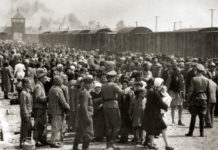A step into the journey of a Shopping expedition, with its advantages:
Considering the pervasive generalities about the perfectionist approach of Germans, and their zeal towards every facet to create or invent something novel, let’s get slightly subjective here and talk about how the Germans like to shop in a relaxed and unhurried manner. It is said that in the larger cities of the country the sign “öffnungezeitenit” is plastered on the entrance of every major mall.
This phrase indicates that it’s a 24×7 functioning mall. What is noteworthy is that in traditional retail terms, this phrase would be unheard of. However, it is difficult to claim it in absolute terms about the rigidity or even, as a matter of fact, the dexterity and open-mindedness of the psyche of the inhabitants towards such a regime. It’s difficult to comprehend the pervasive nature, cause several opinions are prevalent about it, for instance, they say Germans are notoriously staid and don’t go outside of the “typical norm”. Now what is ” typical” is pretty subjective.
A few years ago, following the sudden changes imbibed by the changes in Law, 16 of Germany’s regional states were allowed to set shopping hours. Since then the malls started opening round the clock from Monday morning until Saturday evening as Sunday is a holiday, and this is welcomed and accepted by the Germans.
- The blueprint of shopping: Turnover, Functioning hours, and Competition:
The flexible nature of the malls which include coffee shops and bars and also the availability of various resources for various purposes at the disposal of individuals enables them to take more time to window shop, and browse through in a guilt-free way or flip the context and say gain the guilty pleasure from retail therapy. While notorious and rigid shopping hours make moves that chime with most of Germany’s wider economic reforms, most states now give the shops to decide when to open.
The cumulative figure of the turnover might be up or low based on the ongoing and extenuating circumstances. Tough competition between retailers means that few retailers follow the 24×7 regime in order to boost the market share even if there’s no substantial and an immediate increase in the turnover. Despite the fact that there’s no wider scope for an exponential increase in the turnover, the shops have more flexibility with long opening hours in large cities and it is very convenient.
- Socioeconomic factors and Equity of Gender:
While the night time shopping regime is acceptable to some, particularly for women this idea of liberalisation might be difficult in some, not all cases. One of the reasons could be that they work at night on a regular basis, taking a toll on their job satisfaction. What serves as a moderator is the wages they receive. Who is to judge the worth of what a “good quality job” entails?
Considering the economy part of it, it comes to a perfect poise.
- Unresolved questions:
However, do the advantages of shopping at midnight outweigh the fact that long hours don’t create good quality jobs?




































